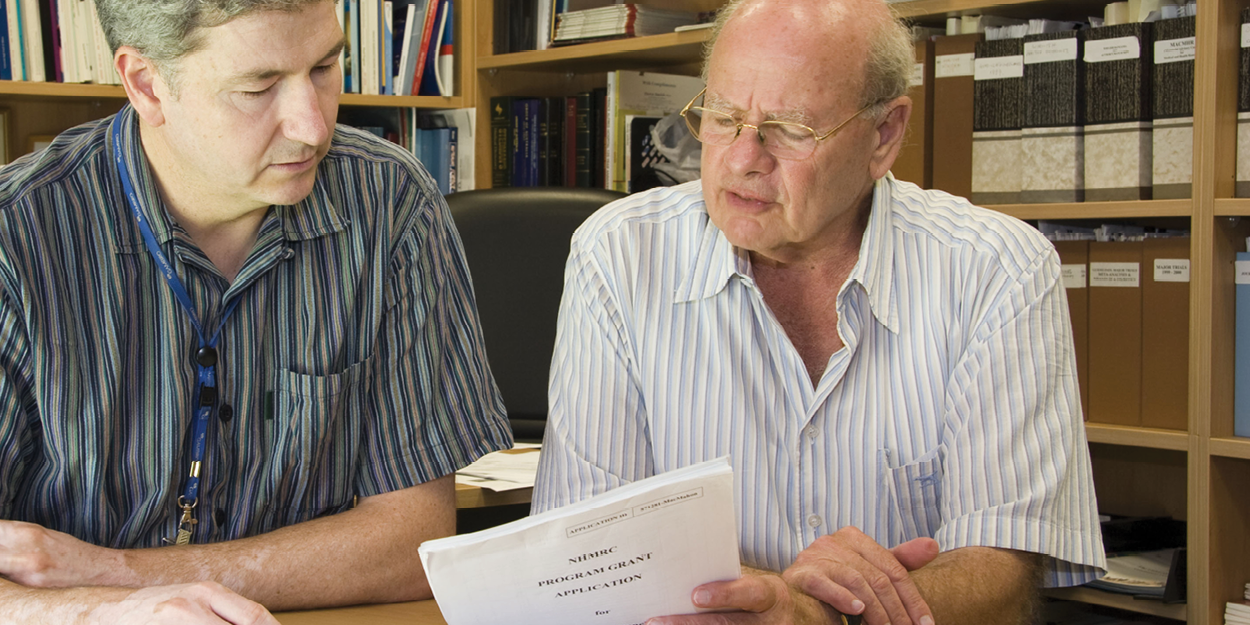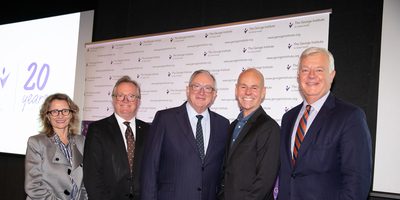
20 years of project management
Over the past two decades, researchers’ findings have improved millions of lives – but there are less well-known staff behind the scenes who play just as pivotal a role, like Helen Monaghan.
Helen’s career began in a cancer registry where smoking was shockingly allowed in the office at the time. Processing death certificates of people who had died from cancer seemed very much at odds with this practice. Coincidentally, it was while working in Oxford for Sir Richard Doll, the person who finally proved that smoking causes lung cancer, that Helen first saw the power and impact of scientific research close at hand.
But it was something else that cemented her resolve to commit to what has become a long and passionate career in medical research – the chance to join The George Institute in 2000 to work on ADVANCE, the world’s largest, most ambitious diabetes clinical trial. The opportunity was so attractive, Helen moved from the UK to Australia to embrace it.
“It was my dream job and still is,” says Helen. “From the beginning, The George Institute was a very motivating and dynamic environment to work in; one of real optimism and growth.”
Helen, now Director of Global Project Operations, is the longest-standing member of Project Operations – a team of around 80 people globally that provide supporting services for studies and trials carried out across the Institute.
It is one of the most interesting aspects of research. Helen and her colleagues play a vital role planning, managing and continuously improving the way research projects are conducted at the Institute.
This includes everything from involvement in grant applications; assisting with the development of protocols; ensuring a research project is completed on time and to budget; making sure that participants’ rights, safety and wellbeing are protected; and ensuring that data is acquired thoughtfully, curated and used respectfully, stored securely and shared carefully.
“There are examples where studies are poorly designed and run; this can mean that results can’t be published, disseminated or implemented,” says Helen. “Our results have a big impact on people’s lives, so getting it wrong is not an option. The project operations staff at the Institute are dedicated to contributing to high-quality research where risks are managed and mitigated, and where the integrity of project data is a primary focus.”
Helen is incredibly proud of the collective determination of staff from across the organisation to work together to achieve something bigger and more important than any of them could achieve alone.
“I have been really lucky to work with researchers who really understand the importance of project management and we work alongside each other as peers,” she says.
As Helen and her team celebrate 20 years of helping researchers carry out complex studies around the world, she is still very excited about the possibilities ahead.
“Our focus will remain on helping under-served people around the world, and I think we can get even more creative and brave in our research conduct by developing innovative initiatives to improve how we do things in a way that saves time, money and consequently lives,” she says.
Celebrating 20 years: Helen’s top moments
- Making history: “Working on the ADVANCE clinical trial was huge. I was involved in the study for about 14 years, right from the beginning until the end of the post-trial follow up. That was 11,000 people from 20 countries. It’s definitely been one of my proudest achievements.”
- Expanding research areas: “Something I love about being part of the Institute is its ability to take on a breadth of therapeutic areas, from where we started with cardiovascular disease, diabetes and injury programs, then expanding to critical care, food policy, respiratory, stroke, mental health and renal programs of work. Alongside that there has been the crosscutting focus on women’s health and Indigenous health. I think this makes the Institute’s contributions stronger.”
- Being part of an agile organisation: “One thing I really like about the Institute is our ability and agility to make big changes, to change our strategic direction, take on new programs and embrace new technologies.”



